Table of Contents
GPSTR Syllabus 2022: The School Education Karnataka had released 15000 vacancies for the post of Graduate Primary Teacher (GPSTR). Interested candidates need to apply for the GPSTR Exam 2022 by 22nd April 2022. Moreover, they need to accelerate their preparation for the GPSTR Exam 2022 in full throttle. Check out the GPSTR Syllabus 2022 and Exam Pattern to understand the extent of the curriculum they need to cover during their preparation. In this article, candidates will find all the relevant information about the GPSTR New Syllabus & Exam Pattern in detail.
GPSTR Official Notification PDF
GPSTR Syllabus 2022 Overview
The Graduate Primary Teacher (GPSTR) is conducted by the School Education Karnataka to recruit eligible candidates for the post of upper primary teachers in government schools of Karnataka. The candidates can refer to the following table for further information.
| Organization Name | School Education Karnataka |
| Post Name | Graduate Primary Teacher (GPSTR) |
| Total Vacancies | 15,000 |
| Apply Mode | Online |
| Job Location | Karnataka |
| Official Website | schooleducation.kar.nic.in |
| Online Registration Starts from | 23.03.2022 |
| Last date of Submission of Application | 22.04.2022 |
| GPSTR Examination Date | 21.05.2022 & 22.05.2022 |
GPSTR New Syllabus 2022 & Exam Pattern
Here is the GPSTR Syllabus and Exam Pattern given below in detail. The candidates will have to appear for three papers – Paper-I, Paper-II and Paper-III. The total marks and duration of GPSTR examination for each exam is different, thus it essential for the candidates to check the table below for clarity.
| GPSTR Paper | Total Questions | Duration |
| Paper-I (MCQ) | 150 | 02.30 Hours |
| Paper-II (MCQ + Descriptive) | 50 + 100 | 03.00 Hours |
| Paper-III (Descriptive Type) | 100 | 02.00 Hours |
GPSTR 2022 Latest Syllabus Marks Distribution
The candidates must check out the GPSTR Marks Distribution to understand the pattern and weightage of marks distributed in various sections of all three papers.
GPSTR Syllabus 2022 Paper-I
There are six sections in GPSTR Paper-I and six different subjects are covered in these sections. The weightage of marks allotted to the subjects is different so candidates should carefully check out the following table to find clarity.
| Subject | Marks |
| Common Kannada Language | 25 |
| Common English | 25 |
| General Knowledge (Current Affairs) | 25 |
| Educational Psychology and Evaluation + Teaching Method | 50 |
| Basic Education and Aerobic Education | 15 |
| About Computer Machine Maturity | 10 |
| Total | 150 |
GPSTR Syllabus 2022 Paper-II
The candidates need to answer questions based on their subject concerned. They need to answer MCQs of 50 marks and 100 marks descriptive type questions. The subject options available for GPSTR Paper-II are- English, Maths & Science, Biological Science and Social Studies. They need to thoroughly check out the GPSTR Syllabus 2022 for further clarity.
| Topic | Marks |
| Knowledge of the respective subject concerned – (Multiple choice questions) (in the OMR Sheet Subject Answer) | 50 |
| Knowledge of the respective subject concerned – (descriptive answer) | 100 |
| Total | 150 |
GPSTR Syllabus 2022 Paper-III
In GPSTR Paper-III, the candidates will have to answer 100 marks questions based on the language they choose as their teaching medium. The questions will be descriptive in nature. The candidates can choose among the following Languages- Urdu, Tamil, Kannada, Telugu, Marathi.
| Topic | Marks |
| Language Competency of respective teaching medium – Language usage, comprehension, vocabulary and writing skills will be tested – (Descriptive Type Questions) | 100 |
| Total | 100 |
GPSTR Syllabus 2022 Subject Wise
Candidates can check out the New GPSTR Syllabus 2022 of Paper-I in the following section. The New GPSTR Syllabus 2022 is discussed extensively in detail.
Subject : General English :-
Language use: (Grammar and functions of Language)
- Parts of speech
- Tense forms
- Verbs: Auxiliaries, modals, participles, regular and irregular verbs, subject – verb – agreement.
- Articles
- Active and Passive voice
- Question Tags
- Framing questions
- Language functions: Introducing oneself and others, seeking and giving information, asking for and giving directions, giving instructions, making a request, giving suggestions and advice thanking, expressing one’s opinion.
- Vocabulary: synonyms, antonyms, prefixes, suffixes, homophones, homonyms, collocations, word forms, one word substitutions, abbreviations, idioms, phrasal verbs, syllabification.
- Reading Comprehension: Unfamiliar passages and poems.
- Rhyming words
- Rearranging letters/words/sentences.
- Proverbs.
Subject : – General Knowledge : Current Affairs
- Books and Authors
- Invention & Discoveries,
- Basic science – Scientific Phenomena
- Health & Hygiene
- Events in World History and Indian history/ Karnataka history
- Glimpses of Indian History
- Geographical terms(basic)
- Sports – International & National
- Awards, Honors and Prizes
- Indian culture – Land & people – festivals. Physical geography – Population – Literacy – Natural regions – Natural Resources – Food crops – Non – Food crops – Major Industries – Projects – Public undertakings. Indian Art – Artists of recognition – Classical Awards for various achievements – National Policy on Education, Constitution of India – Major items – Union Govt. and State Govt – Cabinets – Indian leaders of International & National Recognition – (Who is who – India)
- Current International affairs – India’s foreign relations
- Current National affairs.
- Movies
- Currency and Capitals of the country
Important days and Slogans
- Festivals, Folkdance, tribes of the country
- United nation organization and Head quarters
- Initiatives in education in India
- Monuments and National forests
- Important tourist places and peaks
- Industries and ores
- Three Wings of the army
- Indian constitution
- Highways, Railways, and Airport Name
- Abbreviations
- Science and its branches.
General Mental Aptitude Test
- Series Completion:
- Number Series
- Completing The Given Series
- Identifying the Wrong Number
- Alphabet Series
- Letter Series
- Coding – Decoding
- Letter Coding
- Number Coding
- Substitution
- Mixed Letter Coding
- Mixed Number Coding
- Blood Relations
- Relation Puzzle
- Coded Relations
- Direction Sense Test
- Situations on Angles/Directions
- Situations on Pythagoras Theorem
- Ranking in Row/Column
- Logical Venn Diagrams
- Venn Diagrams
- Intersection Figures
- Mathematical Operations
- Problem Solving by Substitution
- Interachange of Signs and Numbers, Identify correct one, arithmetical reasoning
- Age
- Venn Diagrams
- Ratio And Proportion
- Permutation And Combinations
- Calender
- Spatial Visualisation
- Dice
- Paper Folding
- Paper Cutting
- Identifying the Number of Geometrical Figures
- Triangles
- Squares
- Rectangles
- Analogy: Numbers, Words – Code
- Inserting Missing Character (Numbers In Figures And Their Relationship)
Subject : – Educational Psychology, child development and pedagogy
- Meaning, Nature, Scope, and Need of educational Psychology
- Methods: observation, Case study, experimental and introspection – Meaning, steps and implications
- Growth and Development: Meaning, Principles & Dimensions of individual development : Physical cognitive, language, social, moral and emotional stages of development – development al tasks across various stages from infancy to adolescence,
- Childhood: Meaning, characteristics, implications of physical, intellectual, social and emotional development of child – childhood across cultures and societies. Impact of diversity, differences, marginalization of childhood.
- Adolescence: Meaning and characteristics, dimensions of development in adolescence – physical, social, emotional and moral development patterns of adolescent learner. Impact of Urbanization, economic change culture and media on adolescent. Issues/problems, emotional disturbance, risk behavior, drug, addiction, abuse – bullying, mental health and role of teacher in solving the above issues.
- Learning: Meaning and characteristics of learning, factors of influencing learning – Maturation, Motivation, Attention, Remembering, Attitude, Interest – Meaning and educational implications.
- Theories of learning: Trial and error, Classical and Operant conditioning, Insight learning – Kohler, Bandura’s social learning theory.
- Learner and Learning – Learning style, learning skills for 21stcentury – Critical thinking, Creative thinking, communication and collaborative skills.
- Domains of learning – Cognitive, Affective and Psychomotor – according to Horrain Anderson.
- Discovery in learning – Principle to assesses quality of learning (Bruner)learning cycle for discovery
- Constructivism – Socio – cultural Vygotsky (ZPD – concept),5E model
- Cognitive psychology – Cognitive development according to Piaget
- Children with diverse need – Gifted, Creative, Educationally backward, learning disabled – meaning, characteristics and programs.
- Individual differences – Heredity and environment, personality – factors, theories and role of teacher in development of personality.
- Evaluation – Meaning, characteristics, achievements – types – characteristics and advantages.
- Objective type test – characteristics, construction advantages.
- Concept of CCE ,Diagnostic test, types of evaluation, areas of assessment.
- Tool sand techniques of assessment – characteristics, techniques, Rubrics
- Statistics – measures of central tendency, variability, correlation, NPC.
- Innovative trend sin Assessment – online, open book.
- Effective teaching – components, parameters, teaching skills, principles of teaching, maxims of teaching, techniques – experiential learning, Inductive – deductive, co – operative learning, collaborative learning.
Subject : – Value and Health Education
Health Education
- Health and Diseases: Definition of health, healthy habits. Communicable diseases: classification modes of transmission. Prevention and control.
- Non communicable diseases: Life diseases. Mental health diseases. Prevention and cure
- Diet for healthy living: Dietary requirement of human body. Balanced diet. Malnutrition and types Eating disorders
- Reproductive health: Reproductive tract infections and sexually transmitted infections. Prevention and control
- Growing up with confidence: Growth development and maturation, Determinants of growth and development, Psychological security, Anxiety and depression, Drug and substance abuse, sexual abuse
- Social health: Meaning. Customs and health. Clean water and food resources, community health and uses of healthy environment.
- First aid and safety: Meaning, First aid for drowning fire injuries, injuries an the play field
- Physical exercises, sports, yoga and National integration.
Value Education
- Theories of goodness: Intrinsic and Instrumental Good, Hedonism, Ethical Pluralism, Moral qualities and self Realization
- Rules and Principles of Human Conduct
- Theories of conduct: Universalizability .Rationality and morality, Ethical egoism, Rational self interest
- The general good theory: Rule utilitarianism
- Reasons and emotions in human conduct: Emotions in moral education, factors of control. Moral weakness
- Character and Personality: Components of Personality, Character and it’s factors.
Character Personality Patterns
Values in curriculum and values for Sustainable development
Subject : – Computer literacy
- Introduction to computer:
- What is computer – Broad categories of computers – Language of computer
- Basic applications of computer
- Computer memory and memory devices
- Computer hard ware and software types and different brands
- Types of computers
- Introduction to operating systems:
- What is operating system – Types of operating systems – Linux: UBUNTU – MINT – Red Hat, Mc Os (Macintosh)
- Windows and windows concepts – Different icons on the computer screen – Widow settings: control panel – wall paper and screen savers – status bar – menu bar – tool bar and different options – setting the date, time and sound – Advancement in windows. using right bottom of the mouse – creating short cuts – basics of windows set up
- Application software:
- Different types of application software’s – MS – office – document settings – tool bar – menu bar – sorting – page layout options – cut – copy – paste – undo – redo – save options – different key short cuts in key board
- MS – power point: slide design – animations – slide show – and different applications
- Ms – excel: simple mathematical formulas used excel – alignment – formatting sheet – merge cells – wrapping – charts: pi chart – bar chart – line chart – print preview settings
- Ms – paint: applications and different tools in paint program
- Internet applications:
- Brief History of internet: Brief information about – URL S – ISPs – web page – web links – LAN – WAN – WWW – search engines
- Creating e – mail IDs – sending mail – attaching files – composing – downloading – viewing mails – creating folders
- Nudi Soft ware:
Brief information of Nudi software – options – Unicode font – scroll lock options single language – standard fonts and true type fonts – kannada words typing in nudi Unicode font
- Digital repositories: NROER – DIKSHA, Webinar plat forms: google meet – Zoom meet Microsoft teams – cisco WebEx. Etc.
- Karnataka state govt. projects: Mahiti Sindhu – ICT Projects – CALC schools – STF – TALP
GPSTR Syllabus 2022 PDF
In the following, the candidates will find the GPSTR Syllabus 2022 PDF files for all the papers and subjects. They can easily Download GPSTR Syllabus PDFs by clicking on the links given in the table below.
| GPSTR Syllabus 2022 Paper/ Subject | Link |
| GPSTR Paper-I | Click Here |
| GPSTR Paper-II English | Click Here |
| GPSTR Paper-II Maths & Science, Biological Science | Click Here |
| GPSTR Paper-II Social Studies | Click Here |
| GPSTR Paper-III | Click Here |
GPSTR Syllabus 2022: FAQs
Q: When is the GPSTR Recruitment 2022 Exam?
A: The GPSTR Recruitment 2022 exam date is yet to be released.
Q: When will the GPSTR Recruitment 2022 online application process start?
A: The GPSTR Recruitment 2022 online application form was released on 23rd March 2022 on the official website of School Education Karnataka.
Q: What is the last date of submission for the GPSTR Recruitment 2022 application form?
A: The last date of submission of the GPSTR Recruitment 2022 online application form is 22nd April 2022.
Q: How many papers do I need to answer to qualify in the GPSTR Recruitment Exam 2022?
A: The candidates need to appear for three papers- Paper-I, Paper-II and Paper-III- to qualify in the GPSTR Recruitment Exam 2022.
Q: Where can I find the GPSTR Syllabus and exam pattern?
A: Candidates can find the detailed GPSTR Syllabus and Exam Pattern 2022 in the above article.
Q: From where can I Download GPSTR Syllabus?
A: Candidates can easily Download GPSTR Syllabus by clicking on the links given in the article above.

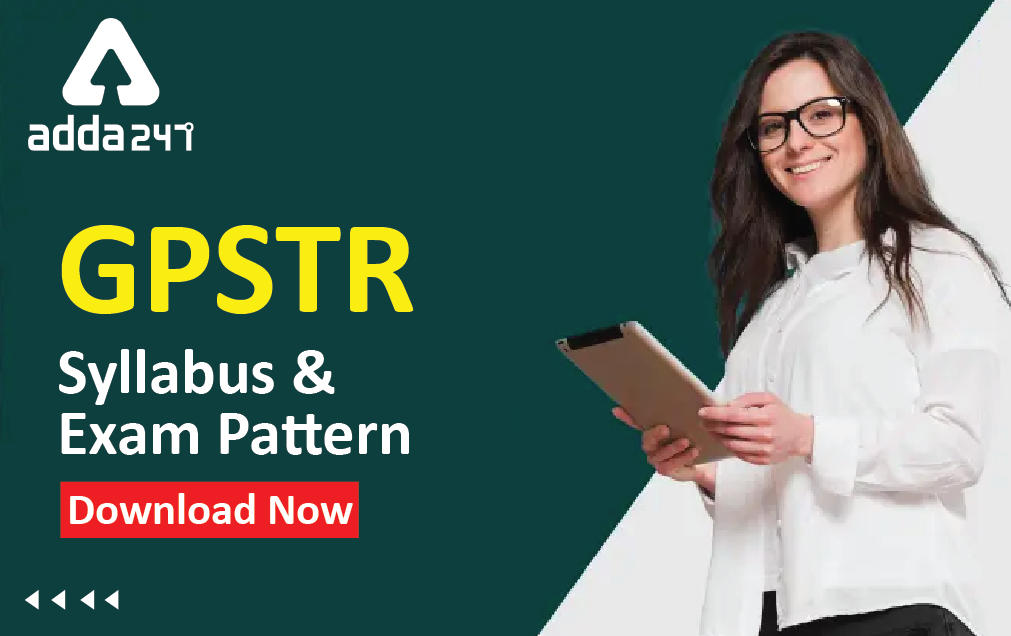
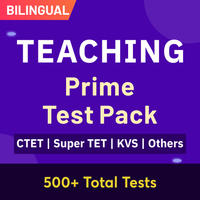

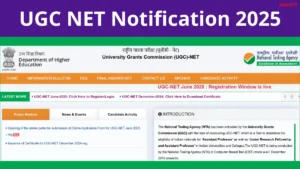 UGC NET Notification 2025 Out, Exam Date...
UGC NET Notification 2025 Out, Exam Date...
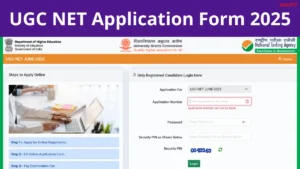 UGC NET Application Form 2025 Starts for...
UGC NET Application Form 2025 Starts for...
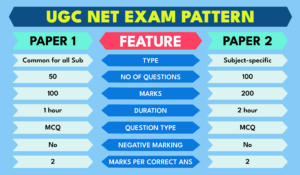 UGC NET Exam Pattern 2025 for Paper 1 an...
UGC NET Exam Pattern 2025 for Paper 1 an...














